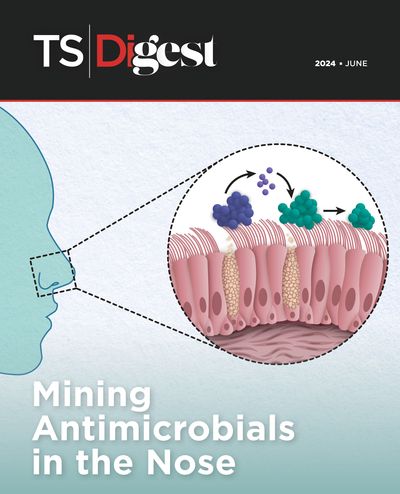Why are Tears Important?
Human tears are a blend of elements that lubricate and protect the human eye.
Tears may evoke an association with emotions, but they are essential to human eye function. They coat the eyes to lubricate and protect them, and although their transparent appearance may trick people into thinking that they are just salty water, Jennifer Craig, an optometrist and vision sciences researcher at the University of Auckland, explained, “They’re way more complicated than that.”

Tears consist of mucus, aqueous, and lipid layers on the eye surface. The innermost mucus layer covers the cornea and is composed primarily of mucins, large glycoproteins that are highly hydrophilic due to their multiple long carbohydrate chains.1 According to Craig, the primary function of this layer is to anchor the subsequent aqueous layer, which makes up the bulk of the tears’ volume, to the hydrophobic surface of the cornea. The aqueous layer contains many different components, including proteins, electrolytes, and antimicrobial and anti-inflammatory agents such as lysozyme and lactoferrin.2 Finally, the outermost layer is an oil layer. “This very thin lipid layer helps stop that watery layer from evaporating too quickly,” Craig said.
As people grow older, their tears change. Aging associates with alterations in tear volume and composition, and even a reduction in the thickness of the tears’ lipid layer.3,4 These changes, combined with other biological and environmental factors, increase people’s risk of developing dry eye disease, in which decreased tear production or increased tear evaporation causes inflammation of the eyes.5
Finding ways to help patients manage dry eye disease is an important goal for Craig. “We are still learning about the things that we can do to mitigate dry eye and prevent it from happening,” she said.
What makes you curious? Submit a question for us to answer in future “Just Curious” columns.
- Pflugfelder SC, Stern ME. Exp Eye Res. 2020;197:108115.
- Tiffany JM. Eye (Lond). 2003;17(8):923-926.
- Mathers WD, et al. Cornea. 1996;15(3): 229–234.
- Maïssa C, Guillon M. Cont Lens Anterior Eye. 2010;33(4):176-182.
- Al-Mohtaseb Z, et al. Clin Ophthalmol. 2021;15:3811-3820.


